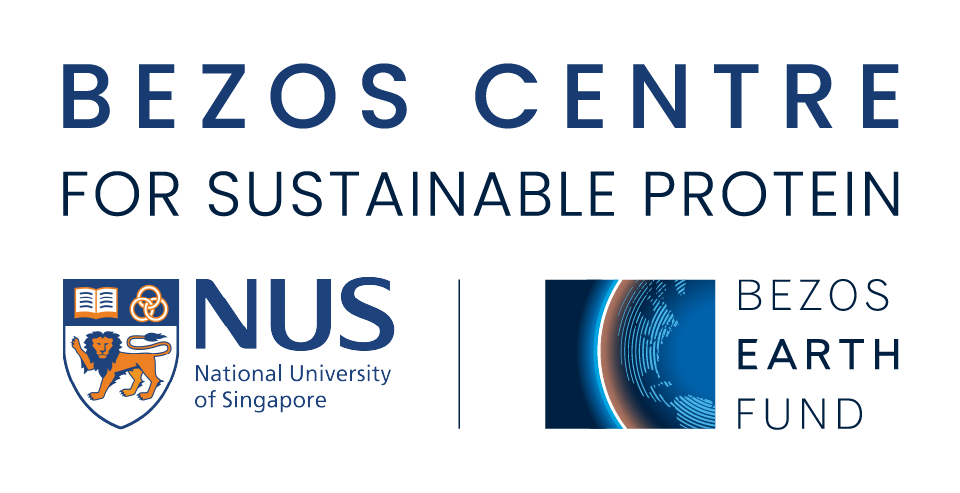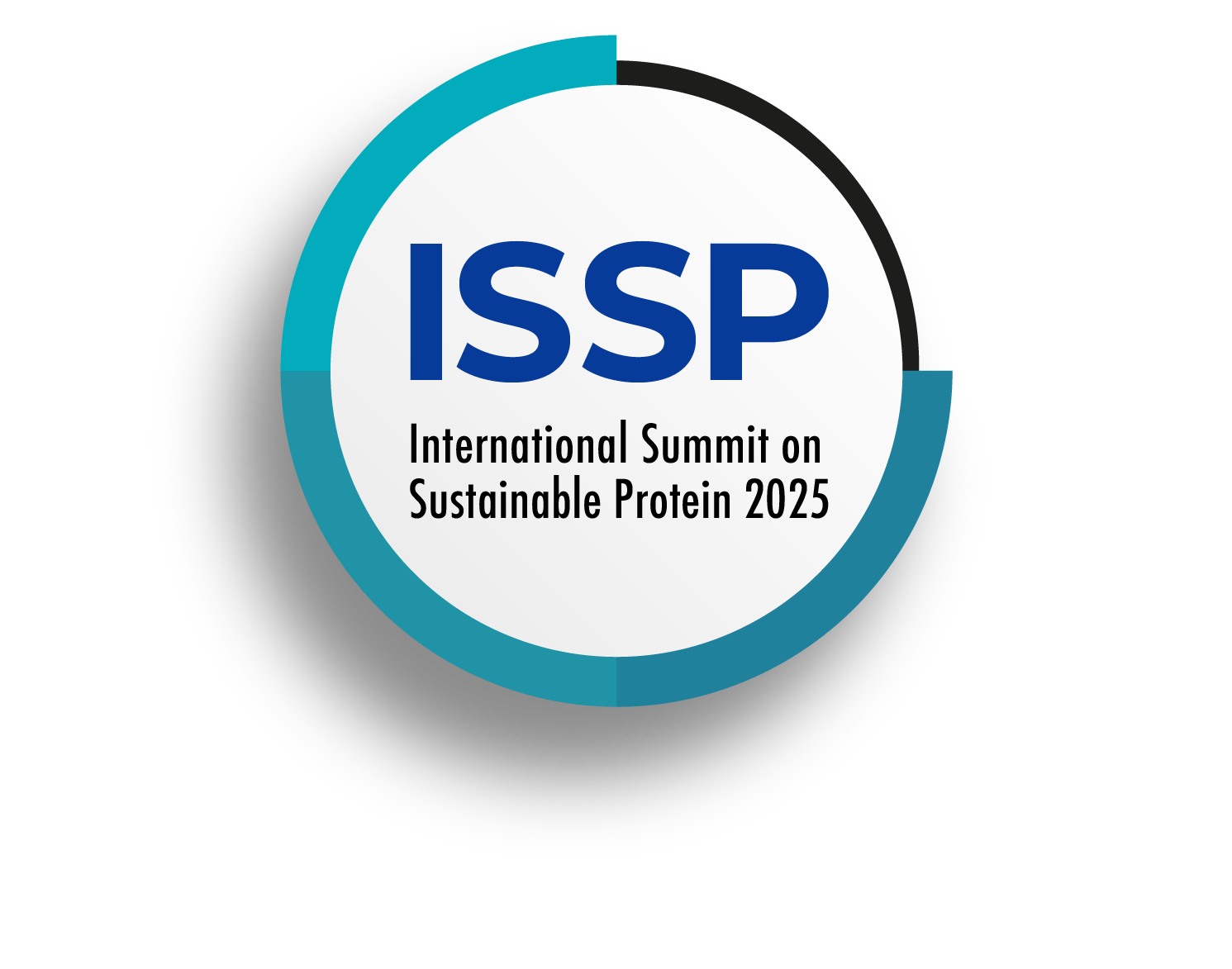
31 July & 1 August 2025
Singapore0
days
0
hours
:
0
mins
:
0
seconds

The International Summit on Sustainable Protein (ISSP) is a 2-day groundbreaking global event that seeks to address one of the most critical challenges of our era: the sustainability and accessibility of protein sources. With the world population projected to surpass 9 billion by 2050, fulfilling the protein needs of an expanding and aging population poses a significant challenge to food security. This is further complicated by climate change impacts on crop yields and disruptions in supply chains amongst others. To cater to the rising demand for safe & high-quality protein, it is imperative to develop innovative solutions that guarantee food security and optimal nutrition while reducing environmental impacts. ISSP provides a unique platform for experts, stakeholders, and innovators from diverse fields to converge and collaborate on advancing sustainable protein alternatives.

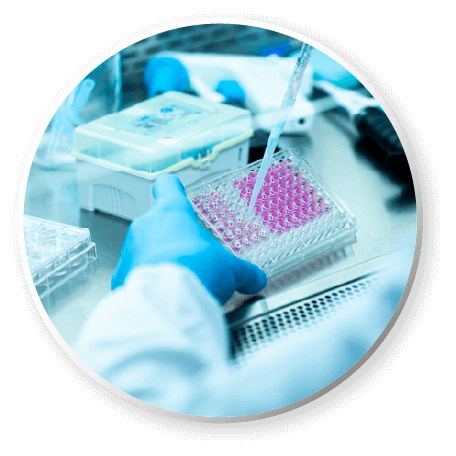
Showcasing breakthroughs in cell culture,
plant-based alternatives, biomass fermentation,
and
precision fermentation technologies.

Sharing challenges, addressing key issues and highlighting latest findings in safety, nutrition and consumer research.

Sharings from Nutrilite, private research
institute and academia.

Insights from government and public sectors on the funding support, commercial opportunities, collaborative platforms, resources sharing and other support in the ecosystem.

Start-up pitching, fireside chats featuring insights from venture capitalists, investors, philanthropists, alternative financing players, and scaling success.






























This is an excellent opportunity to showcase, idea exchanges, and networking with experts and leaders in the sustainable protein field. Don’t miss this chance to be part of the future of food and make contribution to the advancement of the sustainable food systems!
We cordially invite submission of abstracts (250-300 words):
The Themes include:
Format:
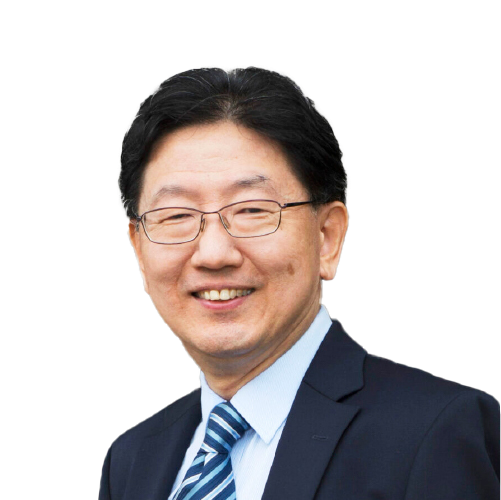








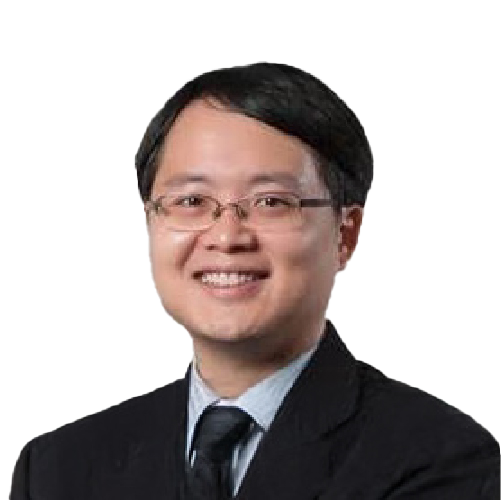





Professor,
Bioprocess Engineering Department,
Wageningen University, Netherlands
Title:
Hypes, hopes, and the way forward in microalgal biotechnology
Synopsis:
The urge for food security and sustainability has advanced the field of microalgal biotechnology. Microalgae are microorganisms able to grow using (sun)light, fertilizers, sugars, CO2, and seawater. They have high potential as a feedstock for food, feed, energy, and chemicals. Microalgae grow faster and have higher areal productivity than plant crops, without competing for agricultural land and with 100% efficiency uptake of fertilizers. In comparison with bacterial, fungal, and yeast single-cell protein production, based on hydrogen or sugar, microalgae show higher land-use efficiency. New insights are provided regarding the potential of microalgae as production platform for precision fermentation and in the feed for cultivated meat and seafood.
Group Leader and Reader,
Department of Bioengineering and the Center for Synthetic Biology and Innovation,
Imperial College London, UK
Director,
Bezos Centre for Sustainable Protein,
Imperial College London, UK
Rodrigo Ledesma-Amaro is a Reader at Imperial College London, where he leads a research group working on Engineering Biology and sustainability. His research focuses on the use of microorganisms to convert renewable feedstocks into valuable products (such as food ingredients). He has published over 150 articles, most on topics related to microbial bioproduction (precision, biomass and traditional fermentation). He is the director of the Bezos Centre for Sustainable Protein and the UKRI Microbial Food Hub.
Rodrigo obtained his PhD at the University of Salamanca (Spain). Before joining Imperial, he carried out his postdoctoral research at the National Research Institute for Agriculture, Food and the Environment (INRAE, France). He has been a visiting researcher at Chalmers University of Technology (Sweden) and AIST (Japan).
Title:
Engineering biology as a solution for sustainable food production via precision fermentation
Synopsis:
Precision fermentation, the production of molecules of interest using engineered microorganisms, is gaining traction as a technology to produce food and food ingredients sustainably. At Imperial College, we recently launched the Bezos Centre for Sustainable Protein and the Microbial Food Hub, two new research Centres fully dedicated to making our food system more sustainable, healthy, affordable, and high-quality. At Imperial College, the use of yeast (S. cerevisiae and Y. lipolytica) to produce food ingredients including proteins, lipids, aromas, flavours, textures, vitamins, colorants are being explored. Cutting-edge synthetic biology tools, including multiplexed CRISPR systems and synthetic microbial communities are deployed to enable high-yield production.
The capacity to manipulate gene expression in a large, multiplexed manner using CRISPRai, which allows both activation and repression of target genes [1] is being explored. This is enabled by the simultaneous, inducible expression of up to 24 gRNAs in a single transformation, which accelerates the strain engineering cycle [2]. Using synthetic microbial communities, fermentation dynamics and production can be further optimised, increasing yields via division of labour and population control [4].
[1] McCarty, N.S., Graham, A.E., Studená, L. et al. Multiplexed CRISPR technologies for gene editing and transcriptional regulation. Nat Commun 11, 1281 (2020).
[2] Shaw, W.M., Studená, L., Roy, K. et al. Inducible expression of large gRNA arrays for multiplexed CRISPRai applications. Nat Commun 13, 4984 (2022).
[3] Aulakh et al. Spontaneously established syntrophic yeast communities improve bioproduction. Nature Chemical Biology (2023)
[4] Peng et al. A molecular toolkit of cross-feeding strains for engineering synthetic yeast communities. Nature Microbiology (2024)
James T. Ryan Distinguished Professor,
Industrial &Systems Engineering
Co-Director,
Bezos Center for Sustainable Protein at NC State University, USA
Rohan A. Shirwaiker is the James T. Ryan Distinguished Professor in Industrial & Systems Engineering and Co-Director of the Bezos Center for Sustainable Protein at NC State University. Shirwaiker’s interdisciplinary research program focuses on biomanufacturing for medical and sustainable food applications. As a Co-director of the Bezos Center at NC State, Shirwaiker co-leads a large team of researchers, educators, and trainees and industry collaborators on R&D, workforce development, and capacity building efforts to advance the biomanufacturing of plant-based, fermentation-made, and cell cultivated meats. Shirwaiker has co-authored over 175 technical articles, abstracts, reports, and patent applications, and is a recipient of honors including the IISE Fellow Award, SME Outstanding Young Manufacturing Engineer Award, and NSF CAREER Award. In 2024, he chaired the CASA-Bio working group and the report on Diversifying Edible Protein Sources for a Sustainable Future in the US.
Title:
Scaling Sustainable Cultivated Meat: A Microalgae-driven Approach to Culture Medium Cost Reduction
Synopsis:
Cultivated meat offers a promising path toward sustainable protein production, but cost barriers – especially for cell culture medium – remain a challenge. This talk will highlight the concept of a novel circular production system that uses microalgae to recycle and replenish animal cell culture medium, with the potential to significantly improve the value proposition for cultivated meat manufacturing. The technoeconomic analysis of multiple system design configurations to achieve competitive culture medium and cultivated meat production costs will be discussed. Opportunities to enhance the system design and performance to bring it to practice will also be discussed.
College of Agricultural, Consumer and Environmental Sciences,
University of Illinois Urbana-Champaign, USA
Professor Yong-Su Jin is a faculty member at the University of Illinois, Urbana-Champaign in the Department of Food Science and Human Nutrition. His research focuses on developing engineered microorganisms to produce biofuels, biochemicals, and food ingredients from renewable resources. Dr Jin received his B.S. (1996) and M.S. (1998, advisor: Professor Jin-Ho Seo) degrees in Food Science and Technology from Seoul National University and earned his Ph.D. (2002, advisor: Professor Thomas Jeffries) in Food Science with a minor in Bacteriology from the University of Wisconsin-Madison. After completing post-doctoral training (2003-2005, advisor: Professor Greg Stephanopoulos) in the Department of Chemical Engineering at the Massachusetts Institute of Technology, he served as an Assistant Professor (2006-2008) in the Department of Food Science and Biotechnology at Sungkyunkwan University in Korea. Dr Jin is a Program Lead of Center for Precision Fermenetation and Sustainablity (PreFerS) which is a CREATE Program supported by National Research Foundation, Singapore (NRF).
Title:
Sustainable and Economic Biomanufacturing of Food Ingredients and Alternative Proteins
Synopsis:
Microbial fermentation offers a robust platform for the sustainable production of food ingredients and alternative proteins, addressing urgent global challenges such as climate change and food insecurity. but high costs limit large-scale use. However, high substrate cost and long fermentation time significantly impact overall production economics. Rapid and efficient utilization of abundant, low-cost feedstocks such as lignocellulosic biomass and food waste through metabolic engineering efforts to convert lignocellulosic hydrolysates and dairy-derived waste streams into high-value food ingredients and alternative proteins could address this.Specifically, the substrate utilization range of Saccharomyces cerevisiae was expanded by introducing metabolic pathways for xylose and lactose assimilation. Additional genetic modifications were introduced to enhance the biosynthesis of food ingredients, including malic acid, vitamin A, human milk oligosaccharides, and tagatose. In parallel, Komagataella phaffii (formerly Pichia pastoris) was engineered to assimilate xylose for the production of alternative proteins from lignocellulosic hydrolysates. Genome-wide expression profiling during xylose fermentation revealed xylose-inducible promoters suitable for driving heterologous protein expression under xylose conditions. These results highlight precision fermentation’s ability to turn low-value feedstocks into high-value foods, supporting a more sustainable and cost-effective food system.
Executive Director,
North Carolina Food Innovation Lab,
Kannapolis Research Center, USA
Co-Director,
Bezos Center,
Sustainable Protein at NC State University, USA
Bill Aimutis is Co-Director/Chief Operating Officer of the Bezos Center for Sustainable Protein at North Carolina State University. Bill had held leadership roles in his career at NC Food Innovation Lab, Cargill, Land O’Lakes, Kerry Ingredients, and other multi-national companies. Bill received a Bachelor of Science degree in Food Science at Purdue University and graduate degrees from Virginia Polytechnic Institute and State University in the Food Science Department. Bill is a Certified Food Scientist, Fellow of the American Dairy Science Association and the Institute of Food Technologists, and a Distinguished Agricultural Alumnus from both Purdue University and Virginia Tech. Additionally, he was awarded an Outstanding Food Science Award from the Food Science Department at Purdue University, and the Ronald O. Ball Lectureship Award from the University of Alberta. Aimutis has served on several industry and university advisory committees and continues to be active on several corporate scientific advisory and managing boards.
Title:
Textural Measurements and Physical Characteristics of Alternative Meat Crumbles from a Drivers of Liking Study
Synopsis:
A drivers of liking study using commercially sourced plant-based meat alternative crumbles was conducted to identify flavor and textural properties and determine drivers of like and dislike. Positive (liked) attributes included breakdown, crispiness, first bite juiciness, residual oily and fatty mouthfeels, and heterogeneity. Negative (dislike) perception of first bite hardness was noted by panelists. Physical testing of crumbles included proximate analysis, freeze thaw stability, drip loss, water holding capacity, and textural analysis measuring hardness, springiness, cohesiveness, and chewiness. Results will be presented and correlated to sensory analysis.
Associate Professor,
Department of Medicine, Brigham and Women's Hospital,
Harvard University
Associate Professor,
Departments of Nutrition and Epidemiology, Harvard T.H. Chan School of Public Health
Director of the Nutritional Biomarker Lab,
Harvard T.H. Chan School of Public Health
Dr Qi Sun is Associate Professor of Medicine at Channing Division of Network Medicine, Brigham and Women’s Hospital and Harvard Medical School. Dr Sun’s primary research interests are to identify and examine biomedical risk factors, particularly dietary biomarkers, in relation to type 2 diabetes, obesity, and cardiovascular disease through epidemiological investigations. His research is primarily based on several large-scale cohort studies, including the Nurses’ Health Studies and the Health Professionals Follow-up Study. Dr Sun is also interested in understanding the role of environmental pollutants, such as perfluoroalkyl substances (PFASs) and legacy persistent organic pollutants, in the etiology of weight change and type 2 diabetes. His primary approach is to, through integrating the state-of-the-art of omics technologies and chronic disease epidemiologic approaches, elucidate novel exposure-disease associations and underlying mechanisms relevant to human beings. His research has led to the discovery of endogenous metabolites (e.g., very-long chain fatty acids), endocrine disruptors (e.g., Bisphenol A and PFASs), circulating proteins (e.g., fatty acid binding protein 4 and soluble leptin receptor), and gut microbiome as predictors or modulators of human metabolic diseases. Overall, his innovative research on multiple important topics has enhanced our understanding of the biological mechanisms underlying nutrition and metabolic health and contributed to the US dietary guidelines for chronic disease prevention. His research thus far has led to more than 300 peer-reviewed publications. Dr Sun is currently leading a few NIH-funded projects that focus on food biomarker discovery and validation, microbial predictors of diabetes, and environmental pollutants in relation to weight change or cardiovascular disease in human populations.
Title:
Protein intake and cardiometabolic health
Synopsis:
Adequate intake of protein is essential for maintaining an optimal health. Abundant evidence suggests that, beyond the total amount of protein intake in our diet, the food sources of protein intake may differentially influence the risk of developing cardiometabolic conditions, including type 2 diabetes, cardiovascular disease, and obesity. Specifically, animal protein intake may lead to an elevated risk of developing these chronic diseases, whereas protein intake from plant-based foods may improve the cardiometabolic health. Such differential effects may be due to other nutrients or constituents in the food sources, as well as complex interactions between animo acids, other nutrients, and the human gut microbiota. Controversies also exist in this line of research, such as the health consequences of soy protein, dairy protein, ultra-processed plant-based meat or dairy products, etc. Much research is needed to fully elucidate the health effects of these important food items in human diet. In addition, different food sources of protein have contrasting impacts on the environment. Overall, consuming an adequate amount of protein primarily from plant-based foods may bring benefits to the human health, as well as the health of our planet.
Professor,
Food Processing Engineering, Protein Structuring and Sustainability,
Wageningen University
Atze Jan van der Goot obtained his MSc and PhD Chemical Engineering at Groningen University, The Netherlands. After completion of his PhD in 1996, he joined Unilever Research as research scientist for three years. Then, he moved to Wageningen University to take up a position as associate professor in the Laboratory of Food Process Engineering. In 2015, he became Professor Sustainable Protein Technology. Currently, he leads a research team that focusses on the development of novel processing concepts for healthy and sustainable foods. He (co-) authored more than 240 peer review papers and holds 6 patents. In 2024, he was identified as highly cited researcher in Agrotechnology by Clarivate.
Title:
Plant-based meat products: next steps in science and technology
Synopsis:
Plant-based meat products have been on the market for several decades now. Still research in industry and universities focus on development of next generation products that mimic meat even better or aim at the development of alternatives for other meat types like whole cuts. In addition, methods are developed to analyze properties of plant-based meat products in greater detail. In this presentation, the state-of-the-art technologies in plant-based meat will be provided. An overview of current developments will be given, both in product development as well as in new analytical tool developments that allow an even better understanding of the structure-function in plant-based meat products and the structuring processes used to make the next generation plant-based meat products.
Professor of Biomanufacturing,
University of Sheffield, UK
Co-founder of Evolutor Ltd and ReNewFood Ltd
Deputy Director,
National Alternative Protein Innovation Centre, UK
Prof Wong is a Professor of Biomanufacturing at the School of Chemical, Materials, and Biological Engineering (CMBE), University of Sheffield (UK). He leads the £7.6M UK-South East Asia Vaccine Manufacturing Research Hub, supported by the UK’s Department of Health and Social Care (DHSC) and the Engineering and Physical Sciences Research Council (EPSRC). The Hub is shortlisted for the Outstanding Partnership or Impact in Health, Welfare, or Wellbeing category at the 2025 Knowledge Exchange and Impact Awards. He also serves as the Deputy Director of the National Alternative Protein Innovation Centre (NAPIC), a £38M initiative advancing sustainable, nutritious alternatives to animal proteins, paving the way for planet-friendly food systems. In addition to his roles at Sheffield, Prof Wong holds adjunct appointments with the National Centre for Genetic Engineering and Biotechnology (BIOTEC) in Thailand and the Bandung Institute of Technology (ITB) in Indonesia. His contributions to the field have been recognized with prestigious fellowships, including the JSPS Invitational Fellowship (2023, which he declined due to his commitments to the Hub), the RAEng | Leverhulme Trust Senior Research Fellowship (2019), the Royal Academy of Engineering Industrial Fellowship (2016), and the Medical Research Council Career Development Fellowship (2007).
With over 20 years of expertise in protein engineering and engineering biology, his research has spanned biopharmaceuticals, enzyme biocatalysis, and alternative food production. He authored the highly regarded textbook A Practical Guide to Protein Engineering (ISBN: 978-3-030-56898-6), which has been translated into German (Ein praktischer Leitfaden für Protein Engineering, ISBN: 978-3-031-32826-8). Beyond academia, Prof Wong is a serial entrepreneur. In 2022, he co-founded Evolutor Ltd, a biotech spinout in Sheffield developing advanced microbial strains for biomanufacturing through a proprietary accelerated evolution platform.
In 2024, he co-founded ReNewFood Ltd, a company dedicated to creating novel protein-based flavor ingredients to enhance the taste and nutrition of alternative foods. Prof Wong serves as the academic coach for Sheffield's iGEM teams. Under his guidance, the 2019 Sheffield iGEM team earned a Gold Medal and the award for Best Open Project. In 2022, the team achieved an Impact Grant, another Gold Medal, and was nominated for Best Hardware. Prof Wong’s passion for biomanufacturing has been shaped by the mentorship of some of the field’s luminaries, including Nobel Laureate Professor Frances H. Arnold, Professor Ulrich Schwaneberg, Professor Sir Alan R. Fersht, and Professor Alexander Steinbüchel.
Title:
The UK’s National Alternative Protein Innovation Centre (NAPIC): A Catalyst for Sustainable Innovation and Research
Synopsis:
The National Alternative Protein Innovation Centre (NAPIC) is a £38 million UKRI-backed initiative launched in November 2024 to accelerate the development and mainstream adoption of sustainable, nutritious, and socially acceptable alternative proteins. Co-led by four world-class institutions — the University of Leeds, University of Sheffield, Imperial College London, and the James Hutton Institute — NAPIC brings together more than 150 partners across academia, industry, government, and the third sector, both nationally and internationally. Its work is structured around four interdisciplinary pillars: Produce, Process, Perform, and People, addressing the full innovation pipeline from novel ingredient discovery and precision fermentation to sensory evaluation, consumer behaviour, and supply chain transformation. With a strong emphasis on open-access innovation, circular bioeconomy strategies, and data-driven tools, NAPIC aims to support the UK’s net-zero goals, strengthen food security, and generate up to 25,000 jobs by 2035. As a national catalyst for change, NAPIC positions the UK at the forefront of global efforts to revolutionise protein production for a healthier, more sustainable future.
In this presentation, alongside a brief overview of NAPIC’s mission and strategic framework — aimed at stimulating cross-border collaboration and accelerating innovation across the global alternative protein landscape, showcasing examples of research from the University of Sheffield. Specifically, on their work using Adaptive Laboratory Evolution (ALE) to enhance microbial protein production: a powerful approach that harnesses evolutionary principles to optimise microbial strain performance. This research exemplifies how Sheffield is contributing to the ‘Produce’ and ‘Process’ pillars of NAPIC by developing robust, scalable biological platforms for sustainable protein generation. Integrating ALE with advanced analytics and synthetic biology to engineering microbial systems capable of converting low-value industrial side-streams into high-value protein ingredients offers a compelling model for circular bioeconomy solutions. These innovations not only align with NAPIC’s goals of sustainability, health, and resilience, but also demonstrate how targeted, interdisciplinary research can deliver impact on both national and global scales.
Director,
Plant Protein Innovation Center (PPIC), Department of Food Science and Nutrition,
University of Minnesota
Dr Pam Ismail is the Founder and Director of the Plant Protein Innovation Center and is a Professor at the Department of Food Science and Nutrition, University of Minnesota. Dr Ismail has over 30 years of experience in Food Chemistry and Analysis research focused on structural characterization and enhancement of functionality, safety, bioavailability, and bioactivity of food proteins, following novel processing and analytical approaches. She is the recipient of a “Distinguished Teaching Award” and an “Outstanding Professor Award”.
Title:
Advocacy for Plant Proteins: Exploring Opportunities and Challenges of Remedies
Synopsis:
The demand for plant-based, novel, and sustainably sourced protein ingredients is steep. While plant protein is gaining traction, functionality and nutritional limitations are hindering their market growth. Improving plant protein functional and nutritional viability will enable successful utilization in various food applications. This presentation will outline our research and translation efforts at the Plant Protein Innovation Center (PPIC) to enhance and advocate plant proteins from various sustainable sources, through a combination of controlled and scalable processing strategies, and through breeding. There is not one size that fits all. Because each protein source is unique, specific upstream and downstream processes, and breeding approaches will result in targeted enhancement in protein functionality and nutrition. Different plant protein sources (e.g., pea, hemp, chickpea, oats, and pennycress) will be featured along with specific strategies that resulted in marked enhancement in their properties for various food applications.
Professor,
Northeast Agricultural University, Harbin, China
Dr Xiaonan Sui, a full professor at the College of Food Science, Northeast Agricultural University, is the Chief Professor SX1 of Northeast Agricultural University, the chief scientist of the National Key Research & Development Program of China, and the Vice Dean of the Heilongjiang Green Food Science Research Institute. He earned his Ph.D. from the National University of Singapore (NUS) and is a recipient of the Distinguished Young Scientists Fund and Excellent Young Scientists Fund from the National Natural Science Foundation of China (NSFC), the Nation-Strengthening Young Scientist in 2024, and one of the top 2% scientists in the world from 2022 to 2024. Dr Sui’s primary research focuses on soy protein. His goal is to uncover the fundamental scientific principles governing protein molecule alteration, assembly, and rearrangement in food processing. Dr Sui led over more than 20 national and provincial projects and has published nearly 200 SCI papers. His exceptional research contributions have earned him numerous awards, including the 18th China Youth Science and Technology Award and many academic talent awards of the American Chemical Society (ACS), the American Oil Chemists’ Society (AOCS), and the International Union of Food Science and Technology (IUFoST).
Title:
Sustainable Proteins and Future Food Technology: Innovative Forces Driving the Food System Transformation
Synopsis:
With the global population continuing to grow and the challenges of climate change becoming increasingly severe, sustainable development has become a core issue of global concern. As the material foundation for human survival and development, the sustainability of food is of great significance for ensuring global food security, promoting economic prosperity, and maintaining ecological balance. The exploration and application of sustainable proteins not only provide new solutions to the resource and environmental issues caused by traditional food supply methods, but also pave new paths to meet the continuous demand of the global population for high-quality proteins. The burgeoning development of future food technology will provide powerful technical support for the production, processing, and application of sustainable protein. Through a series of innovative measures, it is expected to achieve a comprehensive transformation of the food system, thereby driving the global food system toward a more efficient, environmentally friendly, and healthy direction. This talk aims to explore the key role of sustainable protein and future food technology in driving the transformation of the global food system, analyze their innovative development paths, and examine their significant implications for achieving sustainable development. By sharing the latest research advances and development trends, unique value and broad prospects of sustainable protein and future food technology in supporting the achievement of global sustainable development goals will be explored.
Dean,
School of Pharmacy,
PI, State Key Laboratory of Quality Research in Chinese Medicine,
Lisenced Physician, University Hospital
Associate Vice President,
Macau University of Science and Technology (MUST)
Director,
New Business Development,
Protein Solutions at International Flavors & Fragrances (IFF)
With 15 years of experience at IFF, Dr Mark B. Cope is the Director of New Business Development for Protein Solutions. Holding a PhD in Nutrition Sciences from the University of Alabama at Birmingham, Mark has dedicated his career to advancing nutrition through research, innovation, and emerging technologies. Mark’s expertise continues to drive the future of nutrition and protein solutions, from cutting-edge research to impactful product development.
Title:
Soy Protein and Human Health: Evidence-Based Insights
Synopsis:
As global demand for protein rises amid environmental and population pressures, plant-based solutions are becoming essential. Soy protein offers a sustainable, clinically validated option with proven benefits for weight management, sports performance, and cardiovascular health. Extensive clinical studies have been performed to validate the nutrition science benefits of soy protein.
This presentation will explore how IFF is advancing soy protein through innovative research and development. By combining high quality protein technologies with nutritional science, we’re enhancing soy’s functionality and expanding its use across diverse food applications. Our goal is to help meet global protein needs while supporting human health and environmental sustainability.
Director,
Chinese Academy of Science (CAS) Shanghai Institutes of Biological Sciences (SIBS)-Zhejiang Gongshang University Joint Center of Food and Nutrition Research
Honorary Vice President,
Chinese Institute of Food Science and Technology (CIFST)
Chairs,
Food division of Chinese National Committee for Future Earth (CNC-FE)
Editor-in-chief,
Science of Food, a Nature Partner Journal
Pingfan Rao is currently a Distinguished Professor, Fujian Polytechnic Normal University, China. His research focuses primarily on identifying and characterizing bioactive proteins and expression and scale production of recombinant enzymes, protein derivatives as the active ingredients of food, direct interaction of food self-assembled nanoparticles with immune cells,and the connective system’s function as the metabolic regulatory circuit. Dr Rao obtained BE in Food Technology from Fuzhou University of China, M.Agr. in food science from Hiroshima University of Japan, a PhD in biochemistry from Osaka University of Japan. He is an IAFOST fellow, past president of International Union of Food Science and Technology (2012-2014), is currently President- elected of International Academy of Food Science and Technology, honorary vice president of Chinese Institute of Food Science and Technology. Dr Rao is editor-in-chief of Nature Partner Journal Science of Food.
Title:
Rebooting Metabolism - The Surprising Role of Food in Health
Synopsis:
Food profoundly shapes humanity, touching every life with a profound reach while concealing a maze of mysteries beneath its deceptively familiar surface. The advent of functional foods marks a significant milestone in our ongoing efforts to understand its complexities.
However, a more surprising role of food in metabolism is yet to be fully understood. While food ingestion is known to alleviate hunger symptoms, primarily attributed to nutrient and calorie supplementation, our research suggests a deeper mechanism. We found that the topical application of an antioxidant enzyme at acupoints could also suppress hunger symptoms. This implies that removing the metabolic byproduct, superoxide, may 'reboot' metabolism, enabling the conversion of glycogen (stored in muscle and liver) into blood glucose. This suggests a potentially similar underlying mechanism for food's hunger-stopping effect, a finding preliminarily confirmed in animal fasting tests. We hypothesize that this surprising role of food is mediated by the connective tissue system, which appears to function as an electrical metabolic regulating system by processing mitochondrial 'leak electrons' as metabolic products.
Distinguished Professor,
Tufts University
National Academy of Engineering Fellow,
National Academy of Innovators Fellow
Director,
Tufts University Centre for Cellular Agriculture (TUCCA)
David Kaplan is the Stern Family Endowed Professor of Engineering at Tufts University, a Distinguished University Professor, and Professor in the Department of Biomedical Engineering. He is the director of the Tufts University Center for Cellular Agriculture (TUCCA) and the USDA-sponsored Institute for Cellular Agriculture. He is an elected member of the National Academy of Engineering, the National Academy of Inventors, and the American Institute of Medical and Biological Engineering.
Title:
Recent Advances and Perspectives on Future Foods
Synopsis:
Current and future trends in the field of future foods, focused on cellular agriculture and alternative proteins, will be discussed, from recent innovations in the fields to the challenges and opportunities ahead.
Senior Director,
Venture Investment, Leaps by Bayers
Paimun (PJ) Amini is an accomplished investor with a wealth of experience in venture capital, and innovation-driven businesses. Currently a Sr. Director of Venture Investments at Leaps by Bayer, PJ focuses on funding transformative technologies and breakthrough scientific solutions that change the way we grow food and provide healthcare. With a background in research, finance, and entrepreneurship, he brings a unique blend of strategic insight and hands-on experience to every venture he supports. From investing in A.I. to epigenetics and gene editing. PJ’s investments with Leaps in the food arena include sustainable protein solutions, food allergy therapeutics, and next gen fiber products. His career is marked by his passion for disruptive innovation and his commitment to advancing industries that make a positive impact on the food supply and health of society.
Title:
Future of Food: Technology at the Table
Synopsis:
PAST – brief history of human nutrition
PRESENT – how we consume today and the technologies that enable it
FUTURE – Some of the exciting technologies unlocking high protein, low glycemic index, allergen free, high fiber foods of the future
Europe Director,
Responsible Research and Innovation, New Harvest
Maria Gomes Fernandes is a developmental and stem cell biologist that has been working in the cellular agriculture field for the past 6 years. She has a PhD in stem cell biology from the Leiden University Medical Center, in the Netherlands. She started her career in the cellular agriculture field as a scientist at Meatable, a cultured-meat startup located in the Netherlands, where she led the cell line development efforts, together with media and bioprocess development for their flagship porcine fat. During this period she was as well very involved in the writing of the regulatory dossiers for approval in several jurisdictions. She has joined New Harvest, a field-building organization advancing cellular agriculture globally, in April 2025, where she hopes to leverage her experience and network to help advance the field by means of responsible and innovative research.
Title:
Setting the stage for cellular agriculture – a perspective of Responsible Research and Innovation
Synopsis:
In a fast-changing world and climate, we must diversify food production to create a food secure future. Cellular agriculture has emerged as a sustainable option for food production, with the potential to disrupt the current food system, and it is rapidly developing from a mainly theoretical system to a practical set of new food production technologies. The potential success of cellular agriculture depends not only on its capacity to scale economically, but is highly dependent on its general acceptance as a reliable and safe alternative. Responsible Research and Innovation (RRI) emphasizes the need for scientific research and technological development to consider their societal, ethical and environmental impacts. New Harvest’s mission is to develop the innovative and collaborative ecosystem required to create a more resilient and responsible global food system, by creating collaborative ecosystems and executing targeted field-building interventions while developing a body of open cellular agriculture resources.
In this talk, we will explore how New Harvest has been tackling the points here described, by applying principles of Responsible Research and Innovation in practice, and working to ensure that cellular agriculture develops in ways that are inclusive, ethical, and aligned with public values.
Professor in Plant Biochemistry and Nutrition1, Visiting Professor2, Deputy Editor3
1 School of Food Science and Nutrition, University of Leeds, Woodhouse Ln., Leeds LS2 9JT, UK
2 Visiting Professor, Department of Food Science and Technology, National University of Singapore, Singapore
3 Deputy Editor, npj Science of Food, Springer-Nature, 4 Crinan Street N1 9XW, London, UK
My research employs cross-disciplinary approaches to decode the strong correlation between food structure and health, and the underlying biological mechanism, with a particular focus on the bioactive nano-assemblies derived from food processing and their regulatory capacities in cell redox, taste sensing, absorption, and immune-responses. My team demonstrates the native nanoparticles in food are the nutrient-carriers and functional units, proposes a new mode of food-body interaction involving both human and gut microbial cells, quantitatively characterises the structural evolution of food components across length scale in various stages of food manufacture, ingestion, and digestion. Recent advances include identification of black tea nanoparticles demonstrating therapeutic effects in ulcerative colitis, and the bone broth nanoparticles for promoting joint health.
Title:
Native Nanoparticles in Food: Models for Alternative Protein Innovation
Synopsis:
Food processing techniques, such as extraction, precipitation, washing, drying, and fermentation, modify protein structures and induce the formation of supramolecular assemblies. The conformational changes in protein structures often result in functional enhancement or loss and have been a major focus of plant-based food studies. Native nanoscale protein aggregates are found in a wide range of foods and are readily accessible, bioavailable, and multifunctional. Their composition and formation mechanisms, as well as their regulatory capacities in cell redox, taste sensing, nutrient absorption, energy metabolism, and immune responses, have been partially characterised, shedding light on their multifaceted functions.
The spontaneous formation of these nanoparticles highlights the controlled degradation of the native cellular structures of food ingredients and the sequential migration of components from intracellular compartments to the extracellular space. The co-extraction and self-assembly of their main components are features favourable for greener and minimal food processing. The decisive influences of chemical modifications during food processing (e.g., glycation, disulphide bond rearrangement, oxidation) on the formation of nanostructures demonstrate the potential of utilising existing technology and facilities to manufacture food products with desirable textures and tastes. Their protein scaffolds, sometimes hybridised with polysaccharides, can carry lipids, phytochemicals, and various micronutrients, providing excellent examples of food microstructure design for health-promoting functions. Upon ingestion, these nanoparticles interact with digestive fluids, mucosal cells, and microbiota in the alimentary tract, modulating the taste and intestinal sensing of food, and exerting a series of physiological impacts while being gradually digested and eventually absorbed as nutrients. Understanding their roles and mechanisms in mitigating mucosal inflammation, scavenging metabolic wastes, and maintaining homeostasis of cell redox and gut microbiome may help solve another piece of the puzzle in food-body interactions. The use of native food nanoparticles as models for sustainable protein innovation may forge technological solutions to safeguard food security while optimising nutrition.
Professor,
Biomaterial and Nanotechnology,
Northwestern Polytechnical University, China
Dr. Lizhi Liu is currently a full professor at Northwestern Polytechnical University, China. He received his PhD degree in 2022 from University of Eastern Finland, Finland. He was a postdoctoral researcher in the Boston Children's Hospital at Harvard Medical School, working on developing drug delivery systems for otitis media treatment. His current research interests include antibacterial materials, design of nano–bio interfaces, and drug delivery.
Title:
Protein-Based Materials for Food Preservation and Smart Food Monitoring
Synopsis:
Protein-based composite nanomaterials have garnered significant research attention due to their versatile and tunable physical properties, which can be tailored to meet diverse functional demands. Notably, these materials show exceptional promise in specialized applications such as underwater adhesives, fertilizer bioavailability enhancement, and stain-resistant fabric coatings. However, despite extensive commercial and regulatory efforts, food spoilage and contamination remain persistent global challenges, imposing severe repercussions on both public health and the economy. Crucially, these issues could be substantially mitigated through accurate, timely monitoring of food quality markers. As a result, smart food sensors have emerged as highly promising platforms, enabling not only real-time, in-package food quality tracking but also on-site commercial testing. In this context, this presentation will explore recent breakthroughs in the fabrication of protein-based composite nanomaterials, with a particular focus on their transformative applications in food preservation and intelligent monitoring systems. Furthermore, key design strategies and future directions in this rapidly evolving field will be discussed.
President,
Japan Association for Cellular Agriculture/JACA
Visiting Researcher,
Research Center for Advanced Science and Technology (RCAST),
The University of Tokyo
Executive Director,
iCAMP, University of California, Davis, United States
Professor,
UCLA’s Dieting, Stress and Health (DISH) Lab,
University of California, Los Angeles (UCLA), United States
A. Janet Tomiyama, Ph.D., is Professor in the Department of Psychology at the University of California, Los Angeles and Director of the Dieting, Stress, and Health (DiSH) laboratory (www.dishlab.org). She earned her B.A. in Psychology from Cornell University in 2001, her Ph.D. in Social Psychology at the University of California, Los Angeles in June of 2009, and completed a Robert Wood Johnson Foundation Health & Society Scholar Fellowship jointly at the University of California San Francisco and Berkeley. Her work has been recognized by early career awards from the Association for Psychological Science, the Society for Behavioral Medicine, and the Society for Health Psychology. She is also the recipient of the UCLA Life Sciences Excellence in Promotion of Diversity & Inclusion Award, the Undergraduate Research Mentoring Award, the Inaugural Excellence in Graduate Mentoring Award, and the Distinguished Faculty Teaching Award. Her research, which has been funded by the National Institutes of Health, the National Science Foundation, and the Robert Wood Johnson Foundation, focuses on what drives people to eat or not eat, with a special emphasis on consumer objections to cultivated and alternative meats and diets like vegetarianism and veganism.
Title:
Unnatural, Unethical, and Disgusting: Overcoming Objections to Cultivated Meat
Synopsis:
Cultivated meat and alternative proteins hold great promise for the Earth and human health. However, people must buy and eat them for the benefits to become a reality. This talk will outline the potential objections that consumers display against cultivated meat and discuss the potential solutions that arise by considering eating patterns as an identity.
Invited Professor,
Institute of Global Health,
University of Geneva
Director,
Department of Nutrition and Food Safety,
WHO (2020-Jan 2025)
Director,
Department of Nutrition for Health and Development,
WHO (2008-2020)
Title:
Transforming Food Systems for a Sustainable Future
Synopsis:
In two decades, food systems will need to provide healthy diets for ten billion people within the limits of the resources of our planets and in response to the rapid transformation of climate. Currently, food systems generate between 25 and 30% greenhouse gases, consume two thirds of freshwater and 40% land, reduce biodiversity and pollute water through nitrogen and phosphorus fertilization. Additionally, one third of the burden of disease is the result of food and nutrition insecurity and the consumption of inadequate diets. Unnecessarily high consumption of animal source food is largely responsible for the environmental impacts and widespread consumption of highly processed food is responsible for the health impacts. Transformation is urgent, through changes in consumer choices and production practices. Public policies can play a role in reshaping food environments and consumption trends and innovation in sourcing and processing ingredients can offer suitable alternatives, with adequate consideration of health and safety.
Deputy Director,
CSIRO Agriculture & Food
Professor,
Food And Agricultural Proteomics,
Edith Cowan University, Australia
Professor Michelle Colgrave is the Deputy Director for Food leading teams of scientists who are delivering outcomes to support a healthy future for the Australian agrifood sector, through the translation and commercialisation of sustainable food systems research. As former leader of CSIRO’s Future Protein Mission, Professor Colgrave seeks to promote open and informed discussion about what lays ahead for our agrifood systems. She is also a Professor of Food and Agricultural Proteomics at Edith Cowan University, and chief investigator on the Australian Research Council Centre of Excellence for Innovations in Peptide and Protein Science. Her research interests include the application of proteomics, the study of proteins using mass spectrometry, to agriculture and food science to the benefit of human health.
Title:
Novel foods – exploring allergenicity for food safety and bioactives for optimised nutrition
Synopsis:
A major challenge facing the world is providing protein security in the face of a growing global population. To this end, we have started exploring different crops and food sources from pulses, insects, algae, fungi and more. As we pivot towards these under-utilised resources, potential exists for increasing prevalence of allergy elicited by proteins that can trigger life-threatening anaphylaxis. Yet these emerging protein sources can often possess high protein content and health-promoting benefits. In this presentation, the role of proteomics as a powerful tool to characterise both nutritional and antinutritional proteins in emerging protein sources will be discussed.
Associate Vice President,
Humanities, Social Sciences, & Research Communication,
President's Office, Nanyang Technological University
President's Chair Professor,
Communication Studies,
Wee Kim Wee School of Communication & Information,
Nanyang Technological University
Professor Shirley Ho is Associate Vice President (Humanities, Social Sciences & Research Communication) in the President’s Office at Nanyang Technological University (NTU), Singapore. She is also the President’s Chair Professor in Communication Studies in the Wee Kim Wee School of Communication and Information at NTU. Prof Ho is an elected fellow of the International Communication Association for her distinguished scholarly contributions to the field of communication. She is the recipient of the Hillier Krieghbaum Under-40 Award, conferred by the Association for Education in Journalism and Mass Communication for outstanding achievements in research, teaching, and public service. She obtained her BA in Communication Studies (1st Class Honours) from NTU, and her MA and PhD in Mass Communications from the University of Wisconsin-Madison, USA.
Her interdisciplinary research focuses on cross-cultural public opinion dynamics related to science and technology, with potential health or environmental impacts. Her research is instrumental in understanding how human values, media, and other advanced modes of communication shape public attitudes toward emerging science and technologies. Notably, her works were among the first to recognize the importance of heuristic cues or information shortcuts when it comes to how the public make decisions about emerging science and technology.
Prof Ho’s research has been funded by numerous large competitive grants in Singapore, such as the National Research Foundation, AI Singapore, the Infocomm Media Development Authority, the Ministry of Health, Defence Science Organization, ETH Swiss Federal Institute of Technology Zurich, CNRS@CREATE, A*STAR, National Medical Research Council, the Ministry of Education, Singapore Food Agency, and the NTU ACE Grant. She has given numerous keynote talks and plenary speeches at institutions such as Harvard University, the Massachusetts Institute of Technology, and Tsinghua University. Prof Ho has served on expert panels for the US National Academy of Science, Engineering, and Medicine, the World Health Organization, and other professional bodies.
Title:
Public Perceptions of Cultivated Meat: Findings from a Three-Year Study
Synopsis:
This three-year project investigates how diverse stakeholders and cultural groups in Singapore perceive and accept cultivated meat, with a focus on the underlying mechanisms of public acceptance and strategies to address related misperceptions. Using a mixed-methods approach—including focus groups, surveys, and experiments—the project offers comprehensive insights into: (a) differences and similarities in risk-benefit perceptions and acceptance of cultivated meat among the general public, novel food experts, and Muslim consumers; (b) sociocultural, psychological, and media factors influencing consumption willingness among the general public and Muslims; and (c) the potential of AI-powered tools to dispel myths and combat misperceptions. By bridging insights from psychology, communication, and food science, the research uncovers multi-level drivers of novel food perception. Findings from this study can inform targeted communication strategies that address public concerns and cultural sensitivities surrounding cultivated meat.
Principal Scientist, R&D Director
Amway (China) R&D Center
Dr Du serves as Principal Scientist and R&D Director at Amway (China) R&D Center. With a PhD from Shanghai University of Traditional Chinese Medicine, he oversees portfolio strategy, nutrition science and product innovation. His research focuses on plant proteins, traditional herbal, phyto nutrition and probiotics, aiming to pioneer innovations in balanced nutrition, metabolic health, and healthy-aging, etc. He has published over 80 academic papers, edited the monographs
Title:
Beyond Nutrition: Plant Protein - Based Strategies in Enhancing Metabolic Health
Synopsis:
In recent years, the global focus on health and sustainability has propelled plant - based nutrition into the spotlight. Plant proteins, with their unique nutritional profiles and potential health benefits, have emerged as key players in promoting metabolic health. Although some plant proteins may be incomplete in terms of essential amino acid content, proper combination can ensure a complete amino acid profile for human needs. Nutritionally, Amway's all plant protein has a PDCAAS of 1. Clinical studies have shown that plant protein intake is negatively correlated with the incidence of metabolic syndrome (MetS). It can reduce LDL cholesterol, improve insulin resistance, etc. In particular, chickpea protein and mung bean protein have shown great potential in improving metabolic health. Based on this, the chickpea, mung bean and brown rice composite protein formula (3 in 1) optimized through the Smart P&P system not only has an amino acid score greater than 1, meeting the standard of complete protein. Moreover, in the high-fat, high-fructose diet mouse model, it has been shown that 3 in 1 can significantly reduce fat accumulation, improve basal metabolism, and enhance glucose and lipid metabolism, muscle health as well as intestinal health. Since plant proteins can form complexes with polyphenols, the effect is more significant after adding apple polyphenols. In addition, we have launched relevant clinical studies aimed at verifying the intervention effect of the plant protein - polyphenol combination on people with dyslipidemia, so as to provide a scientific basis for the application of plant proteins in the field of metabolic health.
Director, Food and Nutrition Division
Food and Agriculture Organization of the United Nations (FAO)
Dr Neufeld is Director of the Food and Nutrition Division at FAO, and President of the International Union of Nutrition Scientists (IUNS). Her career has been committed to improving nutrition outcomes through the generation and utilization of evidence to enhance policy and programme design and delivery across multiple sectors. She began in an academic position at the National Institute of Public Health, Mexico, then led research and evaluation units in nutrition-focused NGOs before joining FAO in early 2022.
Title:
Healthy diets for all: Sustainable protein in perspective
Synopsis:
Healthy diets are those that are adequate in nutrients without excess, diverse in foods consumed, balanced in dietary energy and its primary sources (carbohydrates, fats, protein), and moderate in the consumption of unhealthy foods and dietary components. This presentation will explore current evidence of the role of a variety of protein rich foods as part of healthy diets and provide reflections on the implications for the transition to sustainable protein, drawing on a recent consolidation of evidence related to the nutrition, environment, and socio-economic implications of animal source food alternatives.
Manager, Commercial and Investments
Innovate 360
With a close to a decade’s experience in the seafood industry, Louis Tan is Commercial & Investment Manager at Innovate360, Singapore’s first agrifood-tech accelerator and investor with multiple facilities. In the past 3 years he has worked with over 100 startups in the agrifood tech sector, including alternative seafood and plant-based innovations, driving fundraising, go-to-market strategies, ecosystem building and strategic partnerships.
Corporate Engagement Manager
Good Food Institute (GFI) APAC
Jennifer leads GFI APAC’s private sector strategy and engagement, focusing on overcoming alternative protein scale-up barriers by coordinating action across market actors on investment, demand, and infrastructure. Before joining GFI, she spent over five years as a strategy consultant in Europe and later Asia, advising agribusinesses, multinationals, development banks, and NGOs on food system transformation and sustainable supply chains. Jennifer holds an MSc in Corporate Social Responsibility and an MA (Hons) in International Relations.
Head of Agrifood & Sustainability,
Deputy Director, Investments
SGInnovate
Jennifer leads GFI APAC’s private sector strategy and engagement, focusing on overcoming alternative protein scale-up barriers by coordinating action across market actors on investment, demand, and infrastructure. Before joining GFI, she spent over five years as a strategy consultant in Europe and later Asia, advising agribusinesses, multinationals, development banks, and NGOs on food system transformation and sustainable supply chains. Jennifer holds an MSc in Corporate Social Responsibility and an MA (Hons) in International Relations.
General Manager
ScaleUp Bio
Aaron Yeo is the General Manager of ScaleUp Bio, a joint venture between ADM and Nurasa, focused on precision fermentation and biomanufacturing. He began his career with the Singapore Economic Development Board, including a posting to the San Francisco office. Aaron transitioned to leadership roles in growth-stage startups, including launching the world’s first cultivated meat product out of Singapore in 2021. He is passionate about harnessing technology to drive sustainable, scalable solutions and bridging the gap between breakthrough science and commercial impact.
Technical Advisor
FoodPlant Pte Ltd
Associate Professor
Singapore Institute of Technology
Dr Lim Bee Gim brings nearly 30 years of experience in food innovation, manufacturing, and education. She was the Founding CEO of FoodPlant, where she led the establishment of Singapore’s first shared food processing facility. Under her leadership, FoodPlant became a strategic platform supporting companies—from startups to established manufacturers—in developing and scaling sustainable food solutions, including alternative proteins.
Dean,
College of Food Science and Nutritional Engineering, China Agricultural University
Director,
Key Laboratory of Fruit and Vegetable Processing, Ministry of Agriculture and Rural Affairs of China
Editor-in-chief,
Food Innovation and Advances (FIA)
Dr. Xiaojun Liao is currently a full Professor of the College of Food Science and Nutritional Engineering at China Agricultural University, specializing in food processing and innovative technologies. He is a Fellow of the Chinese Institute of Food Science and Technology (CIFST), the Chairman of the Agricultural Products Storage and Processing Division (Chinese Association of Agricultural Science Societies), and the Vice Chairman of the National Technical Committee on Food Quality Control and Management of Standardization Administration of China. Has is the founding president of the CIFST Non-thermal Food Processing Technology Division, serving continuously from 2013 to 2023. He serves as the Executive Member of the International Society of Food Engineering, invited as the Scientific Committee Member for many international conferences including the IFT-EFFoST Non-Thermal Processing Conference. He also serves as an Editorial Board Member for top journals including Trends Food Sci. Technol., Adv. Sci., Innova. Food Sci. Emerg. Technol., and Food Eng. Rev.. Dr. Liao has published more than 180 papers and has been selected as a Highly Cited Researcher by Elsevier consecutively from 2014 to 2024. His outstanding scientific achievements has received many awards, including the China’s State Scientific and Technological Progress Award.
Title:
Plant Protein Innovations: Considering Nutrition and Sustainability
Synopsis:
Rising global protein demand and environmental imperatives drive the shift toward plant proteins. Despite their advantages, debates persist about the sustainability superiority of plant protein products, which heavily depends on processing diversity. Innovations in plant protein utilization must prioritize both nutritional benefits and ecological impact. On one hand, mild separation and moderate processing preserve phytochemicals while maintaining a low carbon footprint. Non-thermal strategies like high-pressure processing (HPP) show potential to enhance digestibility or enrich bioactive peptides in beverages. On the other hand, novel bioactive proteins from plants—such as superoxide dismutase (SOD), α′-rich soy protein, and vegetable seed proteins—enable functional food innovation. Collectively, innovations in plant protein processing provide critical solutions for sustainable, nutrition-focused food system transformation.
